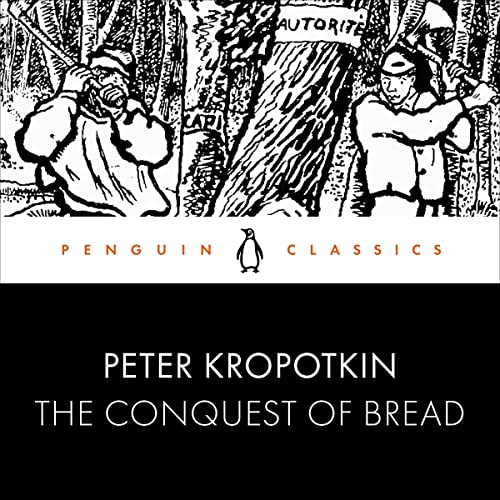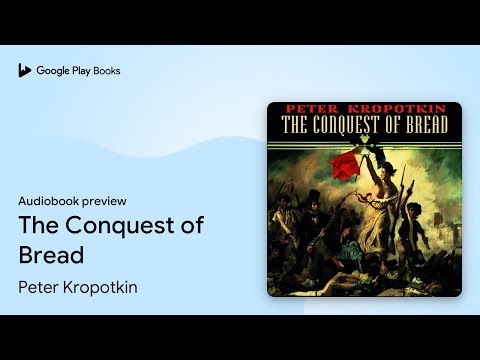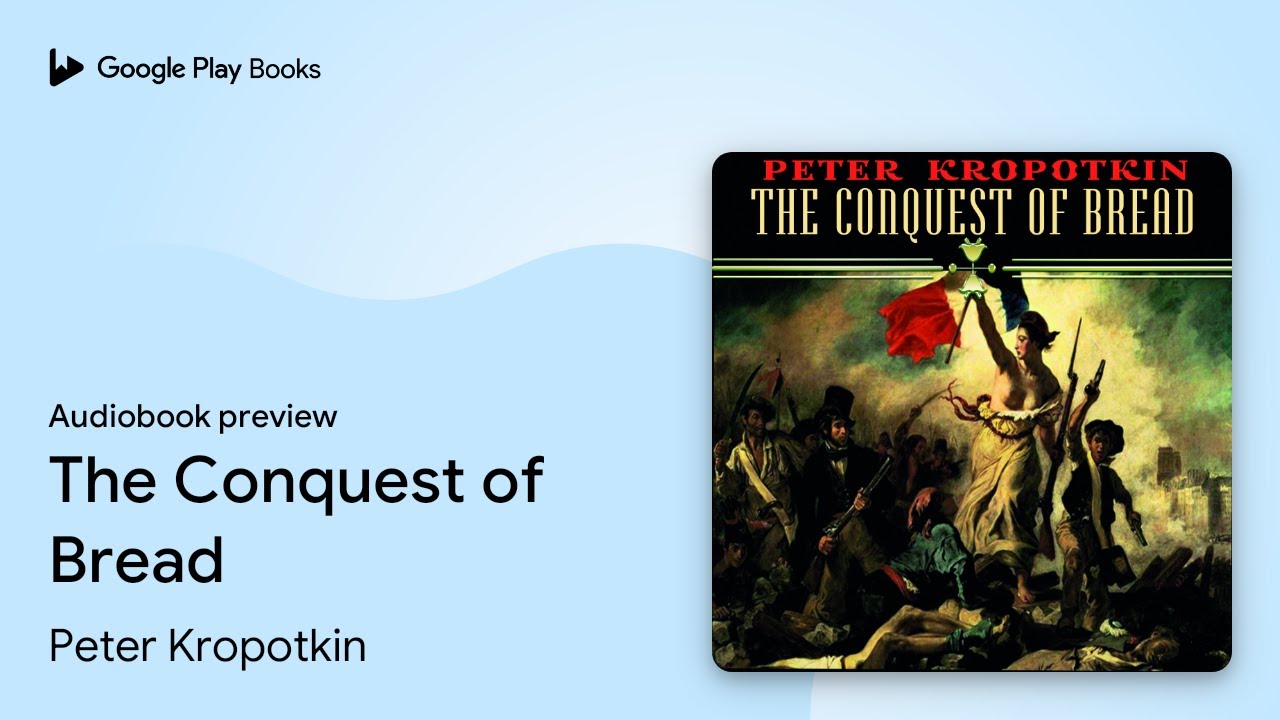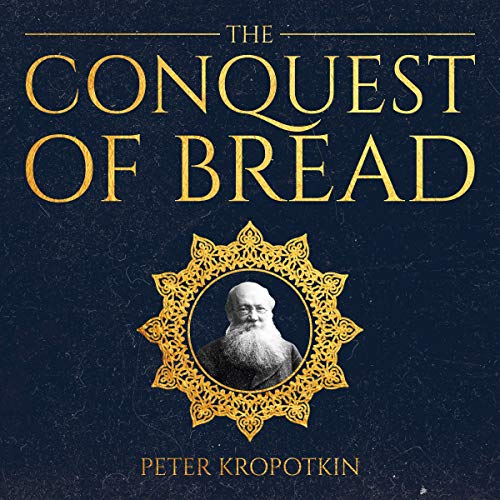Peter Kropotkin’s “The Conquest of Bread” audiobook explores anarcho-communist ideas. It advocates for a society based on mutual aid and cooperation.
“The Conquest of Bread” by Peter Kropotkin presents a vision of a society free from oppressive structures. Kropotkin critiques capitalism and proposes a system where resources are shared equitably. His ideas emphasize mutual aid, cooperation, and communal ownership. The audiobook brings his influential work to life, making it accessible to a modern audience.
Listeners can delve into Kropotkin’s arguments for an anarcho-communist society. This work remains relevant, offering insights into alternative economic and social systems. Ideal for those interested in political theory and social justice, it challenges conventional thinking and inspires new perspectives.
The Genesis Of ‘the Conquest Of Bread’
‘The Conquest of Bread’ is a revolutionary text by Peter Kropotkin. The book advocates for a society based on equality and mutual aid. Its ideas challenge traditional economic and social structures. The audiobook offers a modern way to engage with Kropotkin’s ideas. But where did these radical thoughts originate? Let’s delve into the genesis of this influential work.
Kropotkin’s Life Journey
Peter Kropotkin was born into Russian nobility. Despite his privileged background, he rejected his status. He chose a life of activism and scholarship. Kropotkin traveled extensively and studied various societies. His experiences shaped his views on social justice and cooperation. He believed that mutual aid was a natural and essential part of human evolution.
Kropotkin’s life was marked by constant learning and activism. He was imprisoned for his beliefs but never stopped advocating for a better world. His writings, including ‘The Conquest of Bread,’ reflect his lifelong commitment to social change.
Philosophical Underpinnings
The philosophical roots of ‘The Conquest of Bread’ lie in anarchism and socialism. Kropotkin was influenced by thinkers like Karl Marx and Pierre-Joseph Proudhon. He argued against the concept of private property. He believed that resources should be shared among all.
Kropotkin emphasized the importance of community and cooperation. He saw these as key to achieving a fair and just society. His ideas challenge the competitive nature of capitalism. Instead, he proposed a system where everyone’s needs are met through collective effort.
Kropotkin’s philosophy also drew from his scientific background. He studied biology and geography, which informed his views on mutual aid. He saw examples of cooperation in nature and believed humans could learn from these patterns.
| Key Influences | Impact on Kropotkin |
|---|---|
| Karl Marx | Critique of capitalism |
| Pierre-Joseph Proudhon | Ideas on mutual aid |
| Biology | Concepts of cooperation |

Core Themes Explored In The Audiobook
Peter Kropotkin’s The Conquest of Bread audiobook delves into fundamental themes. These themes challenge conventional societal norms and propose alternative ways of living. The audiobook presents a thorough critique of capitalism, visions for a decentralized society, and the concept of mutual aid as a critical factor in human evolution.
Mutual Aid As A Factor Of Evolution
Kropotkin highlights mutual aid as essential for survival. He argues that cooperation benefits species more than competition. In nature, animals and humans thrive better together. This theme challenges the idea of “survival of the fittest”. Kropotkin believes that helping each other is our natural instinct. Through this, he envisions a society built on mutual support and care.
The Critique Of Capitalism
Kropotkin offers a robust critique of capitalism. He argues that capitalism creates inequality and suffering. The system favors the rich and exploits workers. Kropotkin believes that resources should be shared equally. He proposes that wealth should not be concentrated in the hands of a few. This theme resonates deeply with listeners who seek fairness and justice.
Visions Of A Decentralized Society
The audiobook also explores the idea of a decentralized society. Kropotkin envisions communities managing their own affairs. He promotes local decision-making and self-sufficiency. This decentralized approach reduces the power of central authorities. Kropotkin believes that such a society fosters freedom and equality. His vision encourages listeners to think about alternative social structures.
Impact And Legacy Of Kropotkin’s Work
Peter Kropotkin’s “The Conquest of Bread” is a cornerstone of anarchist literature. This audiobook breathes new life into his revolutionary ideas. His work has inspired countless movements, thinkers, and activists. Here, we explore the lasting impact and legacy of Kropotkin’s seminal work.
Influence On Anarchist Thought
Kropotkin’s ideas have deeply influenced anarchist thought. He advocated for a society based on mutual aid and cooperation. His vision contrasts sharply with capitalist and authoritarian systems.
- Mutual Aid: Kropotkin emphasized the importance of community support.
- Decentralization: He promoted local governance and self-management.
- Equality: His work aimed to abolish class hierarchies.
His teachings have shaped the principles of anarcho-communism. Many modern anarchists draw heavily from his writings.
Relevance In Contemporary Social Movements
Kropotkin’s ideas remain relevant in today’s social movements. Many activists still find inspiration in his vision of a cooperative society. His emphasis on mutual aid has been particularly influential.
| Movement | Key Principle |
|---|---|
| Climate Justice | Community-based solutions |
| Occupy Movement | Horizontal organization |
| Food Sovereignty | Local control over food systems |
These movements echo Kropotkin’s call for decentralized and cooperative efforts. His work encourages a break from hierarchical and exploitative systems.


Conclusion
Discovering Peter Kropotkin’s “The Conquest of Bread” through an audiobook brings his revolutionary ideas to life. This engaging format allows for easy understanding and accessibility. Dive into Kropotkin’s vision of a just society and be inspired by his thought-provoking concepts.
Embrace this opportunity to explore a classic work with modern convenience.



